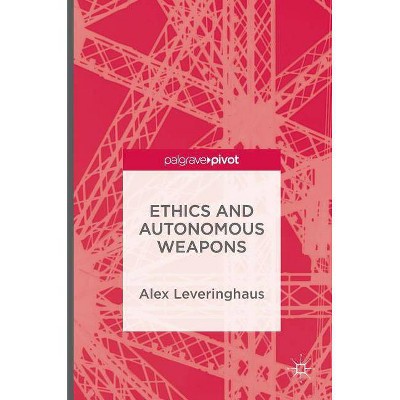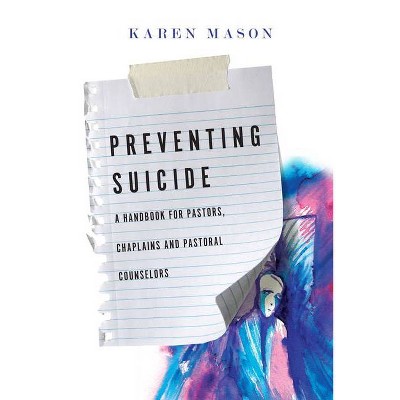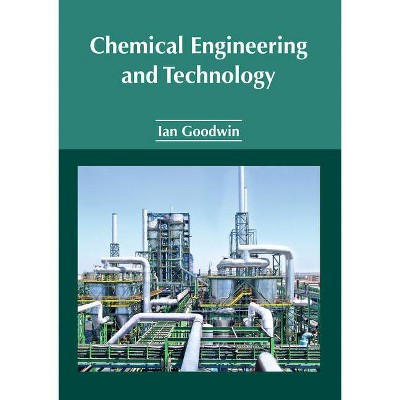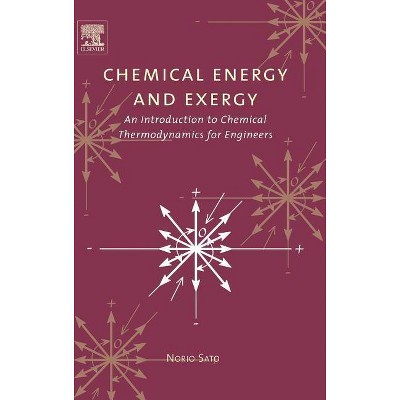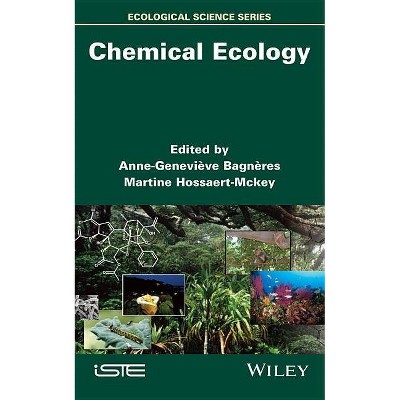Preventing Chemical Weapons - (Hardcover)
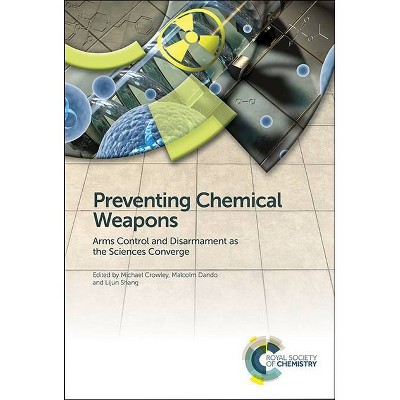
Similar Products
Products of same category from the store
AllProduct info
<p/><br></br><p><b> About the Book </b></p></br></br><p>This multi-disciplinary book analyses predicted developments in chemical and life sciences and the risks of their application in the development of weapons as well as regulatory mechanisms for their control.</p><p/><br></br><p><b> Book Synopsis </b></p></br></br><p>The life and chemical sciences are in the midst of a period of rapid and revolutionary transformation that will undoubtedly bring societal benefits but also have potentially malign applications, notably in the development of chemical weapons. Such concerns are exacerbated by the unstable international security environment and the changing nature of armed conflict, which could fuel a desire by certain States to retain and use existing chemical weapons, as well as increase State interest in creating new weapons; whilst a broader range of actors may seek to employ diverse toxic chemicals as improvised weapons. Stark indications of the multi-faceted dangers we face can be seen in the chemical weapons attacks against civilians and combatants in Iraq and Syria, and also in more targeted chemical assassination operations in Malaysia and the UK. </p> <p>Using a multi-disciplinary approach, and drawing upon an international group of experts, this book analyses current and likely near-future advances in relevant science and technology, assessing the risks of their misuse. The book examines the current capabilities, limitations and failures of the existing international arms control and disarmament architecture - notably the Chemical Weapons Convention - in preventing the development and use of chemical weapons. Through the employment of a novel Holistic Arms Control methodology, the authors also look beyond the bounds of such treaties, to explore the full range of international law, international agreements and regulatory mechanisms potentially applicable to weapons employing toxic chemical agents, in order to develop recommendations for more effective routes to combat their proliferation and misuse. A particular emphasis is given to the roles that chemical and life scientists, health professionals and wider informed activist civil society can play in protecting the prohibition against poison and chemical weapons; and in working with States to build effective and responsive measures to ensure that the rapid scientific and technological advances are safeguarded from hostile use and are instead employed for the benefit of us all.</p><p/><br></br><p><b> Review Quotes </b></p></br></br><br><p>On the whole, the book addresses a very important issue for the present era in a systematic manner. The book is an easy read and makes a significant contribution towards understanding the issues of human-induced misuse of chemistry for war fighting and/or terrorism.</p>--Ajey Lele, IDSA New Delhi "https: //doi.org/10.1080/09700161.2019.1565188 "<br><br>As a CBRN Professional I would highly recommend the text, especially chapters 3, 5-7, 10, 12, 14 & 15, to anyone new to the field of Chemical Warfare. As its content is relevant to anyone, who is looking to educate themselves in the field of chemical weapon non-proliferation. The book provides detailed sections on all the major international treaties<br>and regulations pertaining to control of chemical weapons. More importantly the authors impart a detailed understanding of how the changing security environment and advances in science & technology are likely to challenge the existing Chemical Weapons Convention (CWC) in future.--Professor David Crouch, 3M "CBRNe World, October 2018, Page 71 "<br><br>This timely volume, Preventing Chemical Weapons, is an excellent historical, academic, and policy-relevant examination of the ongoing threat of chemical and biological agents and weapons, the importance of two global treaties in abolishing two whole categories of weapons of mass destruction (WMD)--chemical and biological weapons--and the need for global attention to maintaining and strengthening implementation of these disarmament and nonproliferation regimes in the face of many and varied threats from non-state actors, recalcitrant states parties, national bureaucracies, criminal activities, and global lack of attention. I highly recommend a good read.--Paul F. Walker, Ph.D., Green Cross International and Coordinator of the CWC Coalition "https: //doi.org/10.1080/10736700.2019.1632044 "<br><p/><br></br><p><b> About the Author </b></p></br></br><p><strong>Professor Malcolm Dando</strong> trained originally as a biologist (BSc and PhD at St. Andrews University, Scotland). After post-doctoral studies in the United States (University of Michigan and University of Oregon) he held UK Ministry of Defence funded fellowships in Operational Research at the University of Sussex during the 1970s. Since then he has worked on arms control and disarmament, particularly on chemical and biological issues (DSc. University of Bradford). In recent years this work has been focused on awareness raising and education of life scientists regarding dual use and biosecurity, for example in the Royal Society Brain Waves module on Neuroscience, conflict and security and Neuroscience and the Future of Chemical-Biological Weapons, Palgrave, Macmillan, 2015.</p> <p><strong>Dr Michael Crowley</strong> is an Honorary Visiting Senior Research Fellow at the Division of Peace Studies and International Development of Bradford University, and is also Research Associate for the Omega Research Foundation. He has worked for 25 years on arms control, security and human rights issues, including with Amnesty International, the Arias Foundation, BASIC, as Coordinator of the Bradford Non-Lethal Weapons Research Project and as Executive Director of VERTIC. He has also previously acted as Chairperson of the Bio-weapons Prevention Project. </p> <p><strong>Dr Lijun Shang</strong> is an international lecturer in Medical Science at School of Chemistry and Biosciences, University of Bradford. He is also a senior academic visitor to Department of Physiology, Anatomy and Genetics, University of Oxford, and a visiting Professor to Northwest University, China. During the past two decades, his researches primarily focus on structural and functional studies on ion channel in health and diseases and their physical and mathematical interfaces. Recently this interest is developed onto evaluating the potential toxic effects of nanoparticles, including chemical agents, on human health and diseases, with particularly interests in understanding the underlying mechanism of these effects.</p>
Price History
Price Archive shows prices from various stores, lets you see history and find the cheapest. There is no actual sale on the website. For all support, inquiry and suggestion messagescommunication@pricearchive.us


